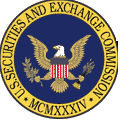The most popular and comprehensive Open Source ECM platform
What will be the future of SOX compliance?
 |
It has been one year since Christopher Cox has succeeded William Donaldson and become the 28th chairman of the Securities and Exchange Commission (SEC). He was sworn in on August 3, 2005, and during the past year we have seen much more vigorous enforcement of securities laws and business regulation. |
Christopher Cox came to the SEC after 17 years as a California congressman. He is a Harvard-trained lawyer and previously had served as an advisor to Ronald Reagan. Cox is different from his predecessors at the SEC. While his roots stem from politics, SEC chairmen prior to COX typically came to the office with very strong business or SEC bureaucratic background.
In a recent self-assessment that Cox gave of both himself and the agency, he gave himself very high marks towards making good progress on improving the implementation of Sarbanes-Oxley section 404. Section 404 has been the main area of controversy with SOX. This is one area that businesses not only in the US are closely monitoring, but businesses worldwide.
Partly because of its brevity, at just 168 words, SOX 404 compliance is the section most feared in the Sarbanes-Oxley act. Its broad language has led many auditing firms to err on the side of safeness, and in doing so have made SOX notorious for being burdensome. SOX 404 requires that top company executives personally check and swear to the adequacy of the company’s financial controls.
Executives have complained of the lack of guidance from both the SEC and the Public Company Accounting Oversight Board (PCAOB). Without guidelines, auditors insist that executives be on top of even the most mundane accounting line items in the company, including even the company stationary supplies.
It’s sometime the case where a law is on the books but it sometimes is willfully overlooked or unenforced. This hasn’t been the case so far with SOX. And there is an international worry now that SOX regulation may go global. The New York Stock Exchange’s plan to merge with Euronext is only fueling the speculation of what might happen and whether the US/SEC may export US-style regulation globally.
This past week I’ve been in Tokyo. Japan typically follows the lead of the US and adopts US regulations as-is, sometimes even assuming the section number of the US law, like the US Internal Revenue Code section 401(K) retirement savings account. So it wasn’t that surprising that with a trip to some bookstores in Tokyo I found row upon row of books sporting SOX and Sarbanes-Oxley titles.
I can remember 10 years ago being in Tokyo and visiting the bookstores. Then the hot topic was CALS (Commerce At Light Speed), the US government’s/miltary’s failed attempt to set standards around eCommerce and the business and military exchange of information via the Internet. In the US, outside the defense industry most people could not tell you what CALS was. But in Japan, CALS led a different life, with books taking up a lot of prized bookstore real estate as you entered the stores.
On this current trip to Japan I also stopped by some used bookstores. CALS books are totally gone from the new bookshops, but in the used bookstores CALS lives on. In the back of the store on the bottom shelf I accidently came across a row of CALS books, most of them priced at 105 yen, about 90 cents.
It makes you think. We’re so often caught up in the hot topic of the moment that it’s hard to imagine a world without it. 10 years from now what will SOX be like? While SOX is probably not going away soon, it is likely that it is going to morph over the coming years.
There will be pressures coming from many directions. The SEC will likely try to push SOX compliance onto companies outside the US that do any business within the US. There will be push back from global companies in adopting SOX-style regulations. There will also be pressure from US companies to refine the language of SOX to be more clear and more straight-forward in defining how compliance can be met. So it is likely that SOX will change, but exactly how is not clear.
At its core, SOX defines a recipe for good and honest corporate accounting procedures. It’s good business. Document and Content management systems like that of Formtek’s can help organizations meet the core values of SOX and other compliance regulations by getting a grip on the management of corporate documents and their lifecycle. Systems like those from Formtek help assist in meeting regulatory compliance. No matter how the fine print of regulations like SOX may change, management of the document lifecycle is sure to remain an important part of good business.














